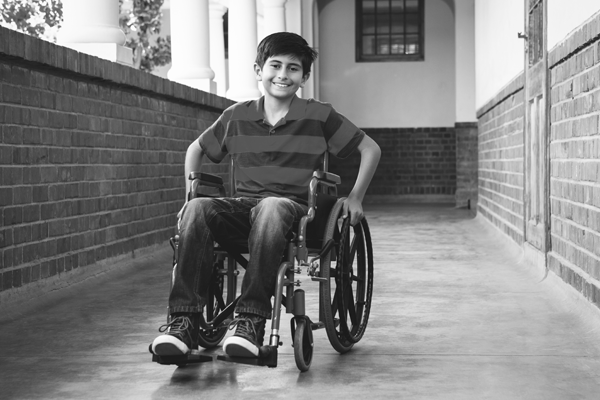Even Severe Asthma Can Improve if Guidelines Are Followed
Even Severe Asthma Can Improve if Guidelines Are Followed https://pediatricsnationwide.org/wp-content/uploads/2021/04/101416BS0608-1024x683.jpg 1024 683 Mary Bates, PhD Mary Bates, PhD https://secure.gravatar.com/avatar/c6233ca2b7754ab7c4c820e14eb518c8?s=96&d=mm&r=g- April 28, 2021
- Mary Bates, PhD

Patients treated with adequate medications and asthma family education can significantly improve irrespective of asthma severity.
Severe asthma accounts for 5-8% of patients with asthma, but this group is more challenging to treat and is responsible for up to 40% of total asthma-care expenses. The majority of patients with severe asthma have difficult-to-treat asthma (in which poor asthma control is due to low adherence to therapy, inadequate therapy or misdiagnosis). A smaller percentage of patients with severe asthma have therapy-resistant asthma (in which asthma fails to be well controlled despite adequate treatment). Distinguishing the patients who could benefit from appropriate treatment from those who are refractory to treatment can be challenging.
In a new study, researchers from Nationwide Children’s Hospital followed children with uncontrolled asthma over three years. Patients were treated according to National Asthma Education and Prevention Program (NAEPP) guidelines, which included appropriate medications and a structured family education program.
The researchers, led by Nationwide Children’s pulmonologist Shahid Sheikh, MD, report improvements in asthma control as early as the first 3-month follow-up visit and persisting through the three years of the study. What’s more, patients had similar outcomes irrespective of asthma severity, with even severe asthmatics showing improvements.
“This study shows that if we pay attention to patients, make sure they take their medicine, and provide them and their families with adequate education, even severe asthmatics can get better,” says Dr. Sheikh, who is also a professor of clinical pediatrics at The Ohio State University College of Medicine.
In this sample, most of the children with severe asthma were not therapy-resistant asthmatics but had difficult-to-treat asthma due to inadequate therapy and/or poor adherence. Once they were receiving adequate medications and asthma education, as per NAEPP guidelines, their asthma control improved within months. This suggests that the majority of children with uncontrolled asthma are not refractory to treatment and could improve with the right therapy.
Dr. Sheikh and his colleagues say that adherence to guidelines can also lead to savings in health care expenses. When the researchers evaluated the cost of acute asthma care in this study cohort over time, they noticed that it decreased by about 75% within a year, with cumulative savings over the three years of the study estimated to be nearly $3 million.
“Guidelines have existed for many years. But, for some reason, in primary care settings, these guidelines are still not followed very closely,” says Dr. Sheikh.
“We propose that just a little care for these patients — just gaining trust of families and patients — just following the guidelines — is all that is needed. Asthma severity is not a limitation to asthma control.”
This article appeared in the Spring Summer 2021 print issue. Download the full issue.
Reference:
Sheikh SI, Ryan-Wenger NA, Pitts J, Nemastil CJ, Palacios S. Impact of asthma severity on long-term asthma control. The Journal of Asthma. 2020 Mar 23:1-10. [Epub ahead of print]
Image credit: Nationwide Children’s
About the author
Mary a freelance science writer and blogger based in Boston. Her favorite topics include biology, psychology, neuroscience, ecology, and animal behavior. She has a BA in Biology-Psychology with a minor in English from Skidmore College in Saratoga Springs, NY, and a PhD from Brown University, where she researched bat echolocation and bullfrog chorusing.
-
Mary Bates, PhDhttps://pediatricsnationwide.org/author/mary-bates-phd/December 27, 2016
-
Mary Bates, PhDhttps://pediatricsnationwide.org/author/mary-bates-phd/
-
Mary Bates, PhDhttps://pediatricsnationwide.org/author/mary-bates-phd/
-
Mary Bates, PhDhttps://pediatricsnationwide.org/author/mary-bates-phd/
- Posted In:
- Clinical Updates
- In Brief
- Research






